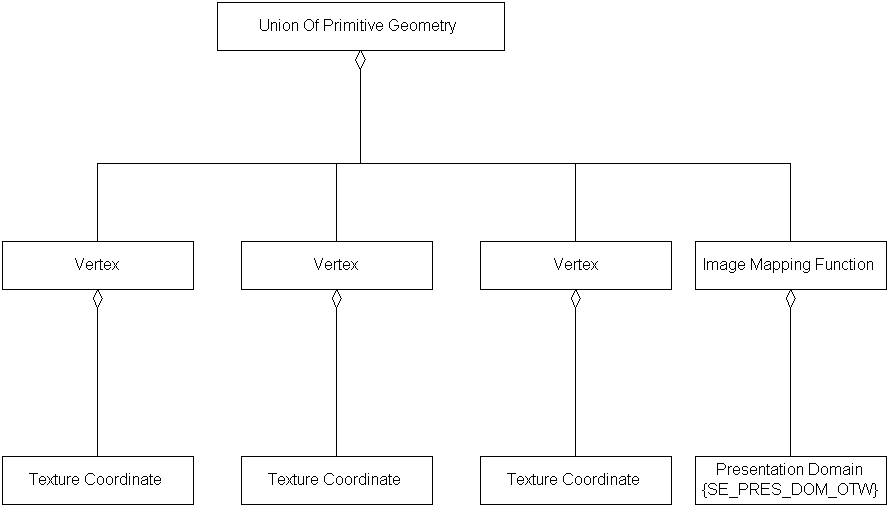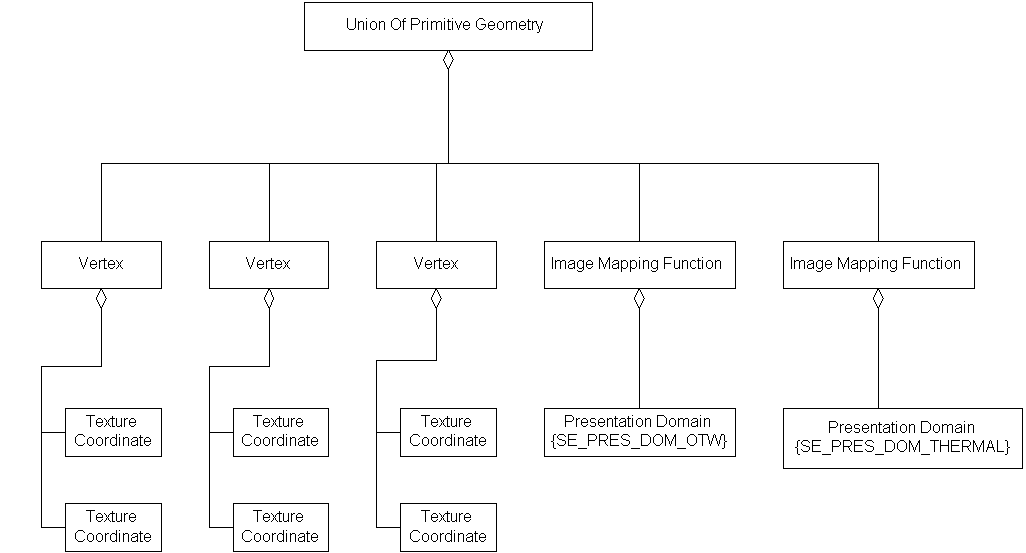The SEDRIS Data Representation Model
APPENDIX B - Constraints
Image Mapping Functions and Texture Coordinates
|
|---|
Definition
The number of <Image Mapping Function>
instances referenced by a <Geometry> instance shall
equal the number of <Texture Coordinate>
components for each <Base Vertex> and
<Tack Point> within the object tree rooted at that
<Geometry>.
<Image Mapping Function> instances
referenced by <Feature> instances, on the other hand,
shall either have <Image Anchor> components, or
reference <Image> instances that have
<Image Anchor> components.
EXCEPTION:
If an <Image Mapping Function> is used
to specify a non-planar projection (e.g., spherical, cylindrical), it
shall use an <Image Anchor> component, and the
<Geometry> to which the
<Image Mapping Function> is attached
cannot have <Texture Coordinate> or
<Tack Point> instances within its component tree.
Rationale
The multiple <Image Mapping Function>
and multiple <Texture Coordinate> instances
are ordered, and are defined to correspond to each other as if they were in
parallel arrays.
<Image Mapping Function> instances
referenced by a <Feature> instance are attributes for
geometry that is to be
derived by the consumer for the <Feature>. Since
<Texture Coordinate> and
<Tack Point> instances are not applicable to
<Feature> instances, such
<Image Mapping Function> instances
shall be specified with <Image Anchor>
components.
Example
Consider a triangular <Polygon> with one
<Image Mapping Function> for the
OTW (out-the-window) domain. Each of the <Polygon>'s
3 <Vertex> components has one
<Texture Coordinate>,
specifying the (s,t) within the image space
that will be mapped to that <Vertex>.

Consider a triangular <Polygon> that has
different texture maps, one for OTW and one for thermal. The
<Polygon> thus has 2 ordered
<Image Mapping Functions>, so
each of its <Vertex> components will have 2 ordered
<Texture Coordinate> components, one for
each <Image Mapping Function>.

See <Texture Coordinate Table>
for examples of how to use
<Image Mapping Functions> with
<Texture Coordinates> specified in tables.
FAQs
No FAQs supplied.
Prev: Image Anchor Spatial Reference Frame.
Next: Index Codes within Tables.
Up:Index.
|
Last updated: May 15, 2003
|
Copyright © 2003 SEDRIS™
|
|

